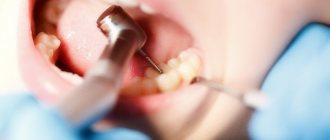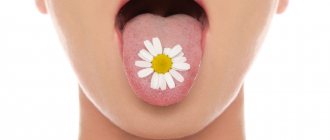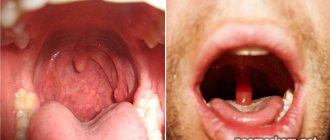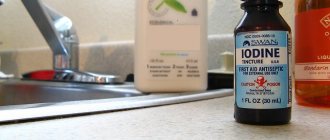Key factors in the development of the problem
If a person doesn’t drink, why does his breath smell like ethyl alcohol? If fumes appear from the oral cavity, the reason may lie in various factors. When such a smell appears, it is very important to detect its causes and get rid of them. This way you can not only eliminate halitosis, but also prevent the development of dangerous consequences of various diseases of internal organs.
If a person does not drink, and his breath stinks of fumes, the following reasons can provoke such a symptom:
- Inflammatory or infectious processes in the ENT organs.
- Pathological processes in the organs of the digestive system.
- Dysfunctions in the production of enzymatic substances.
- Dysfunctions in metabolic processes in the body.
- Various pathologies in the central nervous system.
- Hormonal imbalances (more often occur in females).
- Lack of proper oral hygiene (if the cleaning of the dentition and surface of the tongue is not thorough, this becomes a favorable environment for the development of various pathogens, in particular for anaerobic bacteria that produce hydrogen sulfide. This substance gives such an odor).
- Lack of a balanced diet, consumption of large amounts of unhealthy foods, high-fat foods.
If an aroma characteristic of drinking alcohol appears from the mouth, you should not ignore this symptom. In this case, it is necessary to find out why this is happening. The doctor will help you find out the cause, after which, if necessary, the correct treatment regimen will be selected.
In some cases, people also experience this symptom periodically. The risk group includes people with a history of the following diseases and pathologies:
- Development of cholecystitis or exacerbation of its chronic form.
- Insufficiency of enzyme activity.
- Dyskinesia of the bile ducts.
- Disturbances of the intestinal microflora, dysbacteriosis.
- Dysfunctions in the thyroid gland.
In many situations, the aroma of ethanol without drinking alcohol indicates an increase in endogenous blood alcohol concentration.
Causes of “non-alcoholic” fumes
In medical practice, this phenomenon is called “halitosis” or “ozostomia”. The main culprits of the repulsive odor are anaerobic bacteria. These microorganisms actively produce sulfurous substances and can become active if a person does not take good care of the condition of the oral cavity.
Anaerobic bacteria live in places deprived of oxygen. For example:
- in the tonsils;
- in plaque on teeth;
- on the back of the tongue;
- under dental crowns;
- in dental cavities affected by caries.
Anaerobic bacteria live in every human body; some types of such microorganisms take an active part in the life of the body. But in the event of any failure in health, the bacteria are activated and begin to produce large quantities of hydrogen sulfide, which creates an unpleasant odor. Experts attribute the following situations to the main culprits of this phenomenon:
- ENT diseases;
- diseases of the nervous system;
- poor oral hygiene;
- problems with the exchange process;
- pathologies of the kidneys, gastrointestinal tract, liver;
- dental diseases;
- destabilization of the thyroid gland;
- illiterate and unbalanced diet;
- various disturbances in the production of natural enzymes;
- hormonal imbalances (women often face this situation).
Endogenous alcohol
Not everyone knows that the human body can independently produce ethanol. The name of this substance is endogenous ethanol. Its production is carried out by the structures of the body during the passage of biochemical reactions. This substance is present in the tissues of the lungs and liver. This is a certain amount of alcohol that is constantly present in the body; the concentration can vary in different directions, depending on the influence of external factors.
Normally, the concentration of the substance is from 0.04 to 0.15 ml per 100 ml of blood fluid. Its occurrence is due to fermentation processes in the lower parts of the gastrointestinal tract. In this area, sugar is broken down under the influence of microorganisms and enzymes; after its breakdown into monosaccharides, alcohol is released, which is absorbed into the intestinal mucosa and penetrates into the blood fluid.
This substance has specific tasks in the body:
- Helps the body adapt to external conditions.
- This is one of the sources of energy resources for organs and systems.
- Positive effects on the functions of the nervous and cardiovascular systems.
- Establishing metabolic processes.
- Increased resistance to stress.
- Participation in the process of producing endorphins and other equally important hormonal substances.
- Helps strengthen cell membranes.
With severe psycho-emotional stress, the concentration of endogenous alcohol decreases sharply. And with positive emotions, its level increases. When the concentration of this substance increases, the smell of alcohol may linger for quite a long time.
In this case, in order to eliminate the smell, it is necessary to urgently eliminate the cause of its appearance. The reasons for the increase in the level of endogenous alcohol in the blood include:
- a large number of positive emotions;
- the development of certain pathological conditions - diabetes mellitus, obstructive chronic bronchitis, certain pathologies of the nervous system, liver or kidneys;
- oxygen starvation, insufficient amount of fluid in the body;
- the predominance of foods containing carbohydrates in the diet.
Eating certain foods may also increase endogenous ethanol levels. These include: kefir, yogurt, bread kvass, black bread, chocolate, oranges and pears.
Folk recipes
Folk remedies offer a lot of options on how to deal with this problem.
- Nutmeg or walnuts, as well as parsley, are good at eliminating odor. You need to chew them for 10 minutes. Muscat has a rather bitter taste, but the effect is good.
- It will be useful to dilute a little lemon juice and honey in clean water. Vitamin C improves overall tone, and honey removes toxins from the body.
- Coffee beans will also help neutralize unpleasant odors. Ginger effectively and quickly eliminates the aftertaste of alcohol.
- Chew a lemon balm or mint leaf for a few minutes.
- Knowledgeable people recommend chewing ordinary sunflower seeds along with the husk. However, this method works if you give up tobacco. Otherwise the aroma will only be stronger.
- A bay leaf helps get rid of odor in 5 minutes.
After using these products, you should brush your teeth or rinse your mouth with a saline solution to avoid a specific taste in the mouth. If this is not possible, use chewing gum or cough tablets with a menthol flavor.
We invite you to familiarize yourself with the effect of alcohol on blood and blood vessels
Cloves and cinnamon can also reduce or hide the smell. Almost every person has these seasonings in their home. But with products such as garlic and onions you need to be careful. The sharp, specific aroma of garlic and onions can arouse the suspicion of others.
The fumes from beer last about the same time as from vodka. It disappears no earlier than 5 hours after the party. Special anti-hangover medications will help prevent unpleasant consequences. You can drink tea flavored with lavender, ginger or bergamot.
Some people advise eating the fumes of pine or spruce needles. However, these remedies eliminate the problem only for a short time. According to reviews, natural dark chocolate also relieves fumes. To do this, just eat a few slices of the treat.
To speed up the process of removing alcohol from the body during a hangover, you need to drink as much clean water as possible. Coffee is also characterized by an excellent diuretic effect. It is recommended to drink a cup of tonic drink some time after the party. But people with high blood pressure should take caffeine with caution.
How to eliminate the smell of alcohol at home
If your breath smells like alcohol, you can try to eliminate it yourself at home. Eating certain foods will help get rid of fumes in the morning or at any other time of the day. For example, after entering the stomach, nut and flaxseed oil envelop its mucous membrane, thereby reducing the release of aldehydes. And geranium, orange and clove oils help to quickly and reliably eliminate the unpleasant aroma. By consuming 100 grams of regular sunflower oil, you can also significantly reduce the severity of fumes, but you should definitely not smoke.
Foods that can reduce the aroma of ethanol include: roasted seeds or nuts, dark chocolate, fresh orange juice, citrus fruits, onions or garlic. To quickly remove alcohol fumes, it is recommended to drink plenty of liquid, eat fresh fruits, vegetables, berries that contain a lot of water - zucchini, melons, watermelons, strawberries, cucumbers. If possible, you can make a decoction of lingonberry, sage and chamomile leaves.
An effective method of getting rid of the problem is a shower or bath. And even better is a bath or sauna. There are also certain dietary recommendations: eat fatty or liquid foods, eggs in any form. You can also use pharmaceutical preparations for the aroma of alcohol:
- An anti-police agent that completely eliminates odor, even if there are diseases. But its effect is usually short-lived, since aldehydes are still present in the body. When they are completely eliminated from the body, the smell will disappear.
- Sprays will help reduce the severity of the unpleasant odor for a certain time.
- You can dissolve a validol tablet, take a couple of drops of motherwort or valerian tincture.
It is imperative not to smoke. Otherwise, halitosis will become even more intense and it will be difficult to get rid of it.
Processes for the appearance of amber
To determine the causes of the smell of fumes without alcohol, it is necessary to find out the mechanism of development of this phenomenon. Some believe that the unpleasant aroma is due to fermented food in the stomach. But in reality this is not the case. The smell comes from the lungs - this is the air that a person exhales, containing certain compounds that create a characteristic aroma .
With the help of the pulmonary system and skin, about 10-20% of alcohol is removed from the body, the rest is processed by the liver.
Let's look at the process of fume formation in a person who has consumed alcohol:
- An alcoholic drink that enters the stomach is rapidly absorbed through the mucous membrane and blood.
- In the body, ethanol begins to be processed and forms a metabolite called aldehyde. This compound is toxic. Plus they all smell bad. It is he who becomes the main culprit of the fumes and hangover that a person faces in the morning.
- The liver begins to process the aldehyde and remove it from the body. Its cells (hepatocides) actively break down the alcohol metabolite into acetic acid and water, which leave the body naturally.
- But when a person has consumed an excessive dose of alcohol, the liver does not have time to process the excess amount of aldehyde.
- The remains of the toxic compound, along with the bloodstream, spread throughout all internal organs. Complete intoxication of the body occurs.
By the way, an unpleasant alcoholic aroma is formed 50-60 minutes after consuming the first glass of strong alcohol. If a little alcohol is taken, the fume evaporates quite quickly and disappears along with the last remnants of alcohol. But, if a person continues to drink enthusiastically, the process of alcohol breakdown and its neutralization slows down, and the unpleasant smell will haunt the person who has had too much for a long time.
The unpleasant smell of fumes is formed due to the accumulation of acetaldehyde in the body
This process has long been discussed and understood. It doesn't raise any special questions. But when a person smells of fumes without drinking alcohol, this situation deserves special attention . And you can’t let it take its course.
We determine the cause by the type of odor
Doctors define six types of halitosis. They differ in the nuances of “fragrant” perceptions. By the way, having caught exactly what a person smells like, you can first determine the exact cause of the unpleasant aroma.
These “flavors” indicate various problems in the functioning of the digestive system. Additional factors that only confirm the initial diagnosis include symptoms such as:
- bloating;
- pain in the peritoneum;
- persistent whitish coating on the tongue.
If you observe such manifestations, you should immediately visit a doctor for a thorough diagnosis. The most common culprit in the development of the problem is a stomach ulcer.
A sour taste that is clearly felt in the mouth after each meal and an unpleasant smell with sourness indicate the development of gastritis in a person. This pathology is based on dystrophic and inflammatory phenomena in the gastric mucosa.
You can suspect gastritis (in addition to the smell) based on the following symptoms. Such manifestations indicate the very beginning of the development of the disease:
- weight loss;
- severe belching;
- loss of appetite;
- weight loss;
- increased flatulence;
- constant nausea and vomiting;
- feeling of heaviness in the stomach after eating;
- pain of a burning, acute type in the upper region of the peritoneum (pain worsens or may subside during eating).
Moreover, this unpleasant sensation practically “haunts” the person. It is always present, regardless of food intake. This phenomenon indicates problems occurring with the liver or gall bladder. This phenomenon is sometimes accompanied by pulling and sometimes cutting pains that are located on the side. The exact diagnosis that a person had to face can be made only by a doctor after an examination.
This syndrome most often occurs in diabetes. This disease is extremely insidious and sometimes develops and proceeds at first without any visible manifestations or pain.
It’s not for nothing that doctors call this pathology the “silent killer.” Ignoring the disease in its first stages leads to permanent destruction of the body. This disease can result in kidney failure, heart attack, loss of vision and gangrene of the legs. The first alarm bells are the following symptoms:
- high fatigue;
- constant feeling of thirst;
- long-term healing of skin damage;
- frequent urination (especially at night);
- increased appetite with simultaneous weight loss;
- skin problems (itching, formation of ulcers, boils).
Moreover, this “aroma” does not leave a person even after thoroughly brushing his teeth. This symptom indicates the onset of problems in the genitourinary system. In particular:
- cystitis;
- polyneuritis;
- urolithiasis;
- inflammation of the urethra.
In the case when no pathologies are revealed in a person during examination, doctors note the sixth type of halitosis. In such a situation, the causes of the unpleasant aroma are poor oral care, improper brushing (or lack thereof) of the teeth and the surface of the tongue.
Consumption of fatty soups on the eve of a feast as a preventive measure
You should think about how to get rid of the smell of alcohol from your breath even before the special event. To make it less pronounced, it is recommended to eat heavily on the eve of a noisy feast. In this case, it is desirable that one of the dishes be fatty. Ideal for this purpose:
- sandwich with butter and trout;
- a portion of soup cooked in meat broth.
Eating fatty foods before partying can help ease the hangover that comes with the morning after the party . Carbohydrate foods (high-calorie homemade pizza or a plate of pasta) have a similar effect.
Table: how long does it last depending on the strength and volume of drink, body weight and snack?
| Name | Strength in% | Dose drunk, l | Time with a weight of 60-70 kg | Time at weight 80-90 kg | Time with a weight of 100 kg or more |
| Beer | 4 | 0,1 | 35-45min | 20-30min | 20-25min |
| 0,3 | 100-140 min | 70-85 min | 60-75min | ||
| 0,5 | 130-210 min | 110-120 min | 100-130 min | ||
| Beer | 6 | 0,1 | 45-70 min | 35-60 min | 25-40 min |
| 0,3 | 140-190 min | 100-150 min | 80-110 min | ||
| 0,5 | 220-310 min | 200-240 min | 160-190 min | ||
| Champagne and wine | 11 | 0,1 | 85-110 min | 70-90 min | 50-60 min |
| 0,3 | 250-345min | 200-250 min | 170-210 min | ||
| 0,5 | 350-575 min | 320-370 min | 290-345 min | ||
| Port wine | 18 | 0,1 | 2h.-3h | 1h.45-2h | 1h.30-1h.50 |
| 0,3 | 6:40 -9:00 | 5h-6h | 4:40-5:30 | ||
| 0,5 | 11:00-15:00 | 8h-10h | 7:50-9:20 | ||
| Tincture | 24 | 0,1 | 3h-4h | 2h-2h.40 | 2h.-2h.30 |
| 0,3 | 8:00-13:00 | 7:00-8:20 | 6h-7h | ||
| 0,5 | 14h-20h | 11:00-14:00 | 10:00-13:00 | ||
| Liquor | 30 | 0,1 | 3h.40 -5h | 3h.-3h.30 | 2h.35 -3h |
| 0,3 | 11:00-15:00 | 8:40 -10:25 | 8:00-9:20 | ||
| 0,5 | 18:40 -26:00 | 14h-17h | 13:00-15:40 | ||
| Vodka | 40 | 0,1 | 4 hours 50 -7 hours | 3h.50 -4h.40 | 3h.30 -4h |
| 0,3 | 14:55 -20:50 | 11:00-13:55 | 10:25 -13:00 | ||
| 0,5 | 24 hours 50 -34 hours 40 | 19h-23h | 17:20 -20:50 | ||
| Cognac | 42 | 0,1 | 5h.10 -7h.20 | 4h-4h.50 | 3h.35 -4h.20 |
| 0,3 | 15:40 -21:50 | 12h-14h.35 | 11:00-13:00 | ||
| 0,5 | 26h-36h | 20h-24h | 18h-22h | ||
| Whiskey | 45 | 0,1 | 5h-7h | 3h.50 -5h.10 | 3h-4h |
| 0,3 | 16:40 -22:30 | 13:10 -17:00 | 11:30 -13:00 | ||
| 0,5 | 30h-48h | 24 hours - 35 hours | 20h-24h |
The severity and persistence of the odor depends on the intake of snacks. The following dishes and products help soften, beat off and neutralize:
- Fermented milk drinks - kefir, fermented baked milk.
- Lime, lemon, but not tangerines.
- Herring, salmon, mackerel.
- Olives and black olives.
- Fruit salads.
- Cranberry juice.
- Cottage cheese with nuts.
- Borscht or soup.
- Boiled eggs, omelet.
- Boiled shrimp, scallops, and other seafood.
Pharmacy products
There are also a large number of medications available to combat the smell of alcohol. The most popular and effective are:
- Antipolitsay, Antipohmelin containing flavorings, ascorbic acids kill the smell of fumes, but not for long. The product is most often produced in the form of lollipops. They must be dissolved in the amount of 1 or 2 tablets. After just a few minutes, the smell of alcohol will no longer be noticeable.
- Cough remedies will also help temporarily suppress the amber. To do this, you can suck on a few lollipops, spray with throat spray, or drink a spoonful of syrup.
- One tablet of validol, which should be dissolved, a few drops of tincture of valerian or motherwort will briefly eliminate the smell of alcohol.
- To combat alcohol fumes, you can use preparations containing succinic acid. Use 2-3 tablets per day.
- The Stand Up tablet will help eliminate alcohol fumes. The drug belongs to the anti-hangover remedies, which includes thyme, rose hips, citric acid and other components. 1 tablet is dissolved in a glass of water and drunk morning and evening.
It should be remembered that if you smell of fumes, but have not drunk, these products only fight the unpleasant odor, and not the cause of its appearance.
Therefore, you should not constantly mask the unpleasant odor using other means; you need to consult a doctor and understand why it appears.
Read also: How to overcome a hangover quickly
General recommendations on how to neutralize and remove from the body
To speed up the removal of alcohol from the body, take:
- Mineral water.
- Hot decoctions and infusions of rose hips and sage.
- Strong green tea or coffee.
- Orange fresh.
- Lemon water with honey.
For breakfast they eat a hearty dish - scrambled eggs, omelet, borscht with meat. During the day, add a lot of fresh vegetables and fruits to your diet. Running, physical exercise followed by a shower are helpful. For detoxification, activated carbon, Limontar, and Alco-Seltzer are used.










